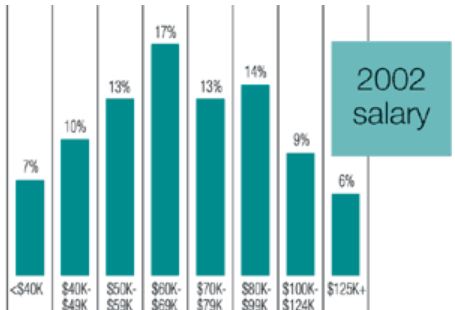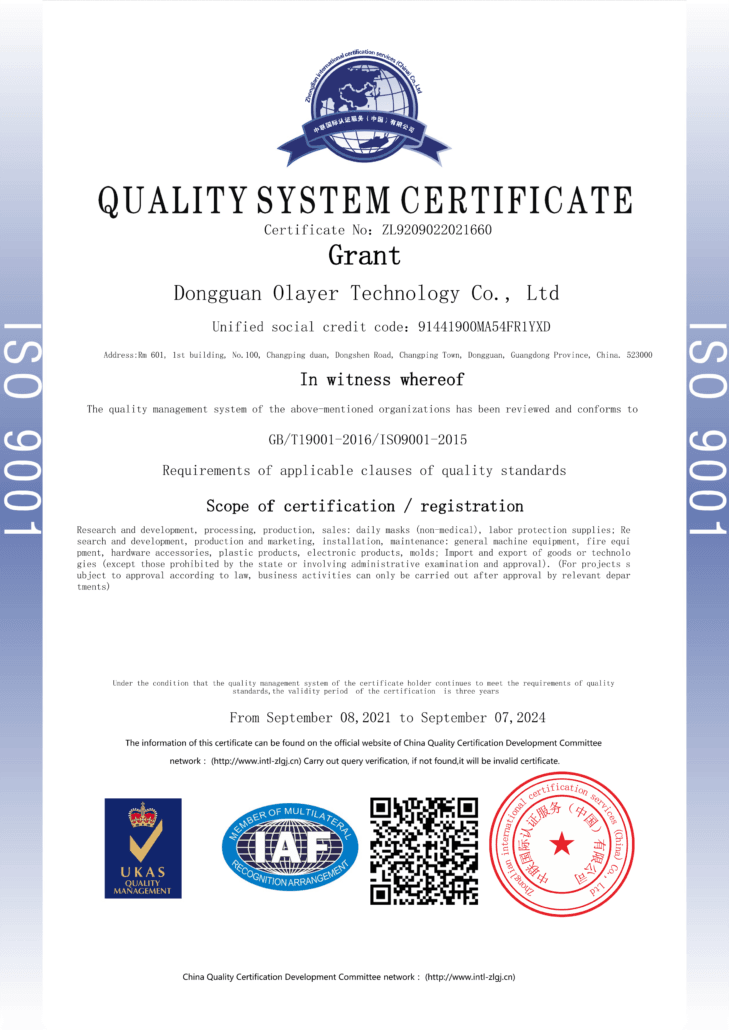Injection molding industry salary survey-industry news
By and large molding professionals are very satisfied with their jobs, and pay is up about 4 per cent in 2002.
This is the second salary survey IMM has conducted, making it an annual event. In September and October, we sent out 1300 surveys and received 507 usable responses, for a response rate of 39 per cent. The results presented here are based on the 440 responses received from those who indicated they work full time at a molding facility, for a design firm, for a mold designer, or for a moldmaker. The margin of error for percentages is 4.6 percent at a 95 percent confidence level.
Last year we reported that the mean salary in the injection molding industry was $70,600. The 2002 mean salary grew 4 percent to $73,600. Based on this data, a typical respondent is a 45-year-old male college graduate who’s been in the industry 18 years and with his current employer at least 10 years. If he got a raise in 2002 it was 5.9 percent, and he has a 401(k) retirement plan. His employer is a custom or captive molder, has 155 employees, and reported sales last year of $20 million.
To help put these numbers in perspective, IMM’s Clare Goldsberry spoke with three members of the molding community is a president, a project engineer, and a QA manager is for their views on job satisfaction, compensation, and important trends for the coming year.
Ron Kirscht, President,

Ron Kirscht joined Donnelly in August 1991 as VP of operations and was named president of the custom mold maker in June 2000. Prior to joining Donnelly, Kirscht was corporate controller at Plastech Corp. (Forest Lake, MN). He also worked in inventory and cost accounting management at Sandoz Nutrition (now Novartis) and the Auditing Services Group at the Minneapolis office of Coopers & Lybrand (now PriceWaterhouseCoopers).
What do you like about your job? I like facing the marketplace’s challenges and the team I face them with, including our customers. Accounting and finance, my areas of focus early in my career, didn’t allow me to solve business problems on a macro level. Now I get to work with a capable and committed group of people, which gives me tremendous satisfaction that transcends pay.
What don’t you like about your job? The role of president can be isolating. Also, members of the management team do not always agree on policy and strategy, and with good reason: The right answer isn’t always obvious and may become a matter of dispute. The occasional conflict surrounding a tough call is vital and healthy for a company despite the pressures put on its president.
Do you think you earn your salary? Yes. I wasn’t raised to seek or accept unjust enrichment. What I do seek is true compensation. True compensation is pride and belief in our company, our leadership, the customers we serve, and the products and services we render. I am very grateful for the people I am associated with, within Donnelly, our supplier base, and our customers. Under my leadership, Donnelly has grown considerably. I have had the privilege of building on a foundation put in place by Stan Donnelly, our founder. Stan had a vision for a very people-centric company. Since its beginnings, Donnelly has focused on building solid relationships with customers, suppliers, and employees. One of my primary responsibilities is to continue to provide a structure for the business that enables us to set the standards for how short-run is done. This means empowering people across the enterprise to make decisions and building a company with the agility and flexibility to respond to and anticipate marketplace changes. This has produced tremendous value for Donnelly and our customers.
What trends do you foresee in the next year that could affect your job? In 2003, I suspect our industry will be pulling out of the economic slumber manufacturers have been enduring. This means transitioning resources from building the foundation for the next wave of growth, to effectively managing that growth. The landscape of our industry will be different from what it was during the economic boom of the late 1990s. The emergence of overseas production of tools and products will be more palpable, and the next generation of successful, domestic molders will be more efficient and poised for growth than during the last boom. I think this will be an exciting period for the best planners, thinkers, and performers. Our ability to successfully manage our growth, continuously improve, and increase customer satisfaction will provide another profound opportunity to elevate who we are and where we are going.
Bill Torris, Director of Project Engineering, one of Plastic molding company. of Alltrista,

Greer, SC
Bill Torris oversees a staff that comprises program managers, design engineers, and advanced quality engineers. As a group, they are responsible for all new business development. We do black box design, part redesign, automation layouts, and tooling for all of Unimark’s manufacturing facilities, explains Torris. We manage the projects through design, quote, build, and integration into manufacturing.
What do you like about your job? Making innovative products. Unimark develops cutting-edge product designs for its customers, so we partner with the leading technology companies in the world. It’s great to sit around the table and design parts, processes, and assemblies that have never been manufactured. Unimark pushes the technology and companies farther than anyone expects them to go. In the end, it’s very rewarding to have in your hand a part no one was sure you could make.
What don’t you like about your job? Trying to anticipate what could go wrong in product development. Unimark’s strength is its ability to integrate technology, but it takes global vendor management to pull it all together. It is difficult to anticipate and work around everything that can go wrong, and quite challenging as lead time to market and product development budgets shrink.
Do you think you earn your salary? Engineering earns its salary. Look at what’s being manufactured today that was deemed impossible by industry experts just five years ago. Unimark is molding parts with tolerances of o.0005 inch in half the cycle time used five years ago. We manufacture parts that are less expensive today than they were 10 years ago, and they work better. We are making medical devices with half the weight, using half the number of components, and with greater usability than ever before.
What trends do you foresee in the next year that could affect your job? The biggest trends coming in the next year revolve around software. The ability to analyze parts, processes, and assemblies is quite incredible. Mold flow analysis and FEA software are becoming more accurate and more affordable. Unimark develops parts in 3-D, performs tests in FEA, and does a complete mold flow analysis before a part is ever made. We then download the results to our CIM system, which performs DOE for the molding cycle, establishes the process setpoints, and monitors the manufacturing process on the shop floor. This allows for shorter time to market, fewer design changes, better production control monitoring, and ultimately lower costs.
Jude Sheets, QA Manager, one ofr Plastic mold Technologies, Reno, NV
Jude Sheets spent the first half of his career in radio a far cry from plastics manufacturing. Why quality? Nobody wanted this job, and I didn’t have manufacturing skills, but I wanted the challenges and the stability that manufacturing offers, says Sheets, so I went into quality where I thought I could best fit into the mix.
What do you like about your job? I enjoy being able to work with the people at Triad, seeing them grow as we move the company forward. I have certain gifts that allow me to think in a logical, structured fashion and address problems that arise. I don’t have any formal education in quality management, but I found that just listening and talking to people and reading all the information out there on quality procedures enabled me to create Triad’s quality program. I wrote our 400-plus-page quality manual, and we upgraded to ISO 9001:2000 certification in October. Also, I like being able to do a lot of different things. Although my title is QA manager, I’m involved in all aspects of our manufacturing business, which gives me the opportunity to solve a variety of problems each day. I wouldn’t be happy tied to a title.
What don’t you like about your job? I dislike ineffective pragmatics accepting something just because it’s there or doing something just because we’ve always done it, without knowing what it really means or why we do it. The challenge is examining those things and changing them to make sense for Triad. If they don’t do anything to benefit us or the customer, why do we do them? Also, I’m always looking for ways to get rid of redundancy. That’s more of a pet peeve.
Do you think you earn your salary? I believe that I do. I, like most people here, am a part of everything that goes on at Triad. We’re all on the same team, with the same goal, and can play an integral role each others departments. I need to be involved in several areas of the manufacturing process to achieve the goals of Triad, which include being a supplier of excellence in all aspects of business and in the products we manufacture.
What trends do you foresee in the next year that could affect your job? The biggest challenge will be competing on a global scale with quality that is fairly equal across the board. Quality parts are coming out of Asia at half the price, so why buy from Triad? That’s the question I constantly have to ask. The answer is that Triad provides value-added services and products in an environment that is conducive to our customers success. We provide the customer service, accessibility, and accountability that an outstanding supplier should be able to provide.
Base on all above information to find mold manufacturer China to make plastic molds will save your cost, contact us to get quote


